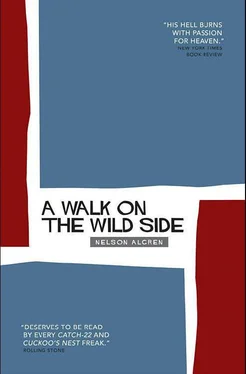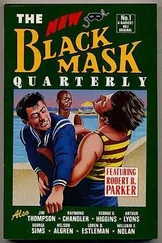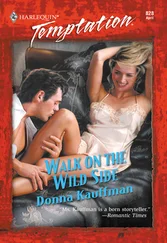Later, a woman who saw that the face on the floor was no longer a face but a mere paste of cartilage and blood through which a single sinister eye peered blindly, recalled: ‘When I seen him on the floor unable to rise and fight back, it went right through my mind – Murdering. Murdering . Why give him a chance?’
And when it was done Schmidt looked all around like a man in a lifting daze. He looked at them all as though there were something they knew he did not know. As if he did not understand the blood that was fouling his hands.
Kitty Twist knelt to put her thin arms around the cripple’s neck, and her lips were almost on his before he pushed her off, his eyes glassed by disgust.
‘Get this man help and open the doors,’ he commanded, and the doors were opened just in time to let the last of daylight in.
Schmidt saw the day and the open door. Yet he sat his platform without a move until Dockery said, ‘Get him out of here.’
And eagerly then, its tension relieved and its contempt wakened, the crowd went for the half-giant as though he were just some sort of thing. One shoved him from behind. Another hauled him by his hair. While another began kicking the little wheels that only a minute before he had feared; but that now didn’t move fast enough to please him. While that same poor bitchified prey, Kitty Twist, spat down the nape of his neck.
And he took it, Schmidt took it, he took it all. Like a statue of grief with a sorrowing air, as though he had done nothing more than their own work for them: a saint of the amputees.
Out of the speakeasy that had outlived its time, through the final door of a dead decade, they wheeled the deposed hero that once had been a man. Onto a downhill street.
Somebody gave the platform a shove. And waited a minute, with others who waited, to watch the thing reel from one side of the walk to the other, gathering speed as it lost control, making uphill trudgers dodge like dodging a drunken wrong-way driver – when it hit the telephone pole not one laughed. They merely stood watching to detect, from their distance, some movement from that crumpled lump, half on the curb and half on the street. But saw no movement at all.
Inside they heard the juke box begin—
You made a lot of money back in ’22
But whiskey and women made a fool of you—
And returned inside with the executive air of men ready, if need be, to vie with one another for whatever was best for the public welfare.
On Saturday nights the backland squatters came into Arroyo by Model T and by cart, but most came by foot. Some had shoes and some had none. But booted or barefoot they all shambled; and the woman stayed just a step behind all the way. She would have her shawl drawn across her mouth to keep the dangerous night-damp out and he would be breathing into a handkerchief or bandanna; after the Mexican manner.
But when they got into town there was so much talking to be done they forgot all about the dangerous air, or perhaps the air inside the city limits was made of better stuff. For the women chattered through all the stores, pointed in the windows with other wives or went to see a movie starring Rod La Roque. They all tried to get the old man to the movie too, whether he would or no: that much less chance of his getting drunk was the point.
He seldom fell for that. He sent her in and shambled off to the courthouse steps to hear if the preacher had anything to say he hadn’t said on a thousand other Saturdays.
An uneasy rumor was going around that the old man wasn’t as strong against the Pope as he once had been. In fact he didn’t seem as strong against anything as he once had been. The wrath and the fire that had been as good as a free shot of tequila seemed to have gone out of Fitz.
Was it whiskey or weariness that had caught up with him? Or just that, since Byron had been buried, there was nobody left to heckle him? Whatever it was, when he led them to the uttermost edge of Damnation now and forced them to look over the terrible rim, the fall they saw was no more than a foot or two into a coal yard of rain-wetted cinders with a few rusty beer cans lying about. Broken gin bottles lay among the dead slag that held promise of neither flame nor fire. They sniffed for the assurance of sulphur on the air: and smelled nothing but marigold that grows in old dumps.
Marigold mixed with the scent of blown dust that they knew so well it had no more scent than air. The old man had not really taken them anywhere.
Yet out of courtesy and having nowhere else to go, they still listened to the threats of his faded passion.
‘The glory is gone from motherhood,’ he told them. ‘Women who smoke and drink and wear pants are unfit to be mothers of men. What a monster-osity is a cursing, drinking, smoking, painted, bobbed-haired mother! When the Pope says modern woman is an insult to her maker he got more backbone than our own protestant preachers. Didn’t the Lord say, if a woman have long hair, it is a glory to her?
‘More shameful things are worn by women on the open street these days than were worn in brothels a few years ago,’ the old man went on and on. And there was nobody to ask him how did he know what had been worn in brothels a few years ago.
‘Even our little girls are turned out into the streets almost naked, inviting God’s judgement on sin black as Sodom! Are we willing to pay the price?’ he asked, and answered his own question, ‘When it comes to God dealing with a nation’s sin, there are no dollar days. Are we willing to pay the price?’
They stared up at him indifferently. If they had the price of anything they would be in the movie or brothel, that look told.
Few noticed, in that dusky light, the man in the city suit, a broken feather in his cap, leaning against a tree in the shadows. Strangers came through town at all hours these days.
‘He’s lost the call, that’s all,’ Dove realized, trailing his hand down the howitzer barrel to where he felt it narrowing. Then touching a tree to his left with his walking stick, touched his way to the street. ‘Not paved yet,’ he thought at the stick’s first touch of the familiar dust.
Under the street lamp in front of the domino parlor two Mexicans saw him coming along the curb. One took a step toward him to guide him across the street, but the other held him back. ‘If he needs help he’ll ask for it,’ he told his friend.
The man didn’t need help, it appeared. He waited for a cart to pass, then went without haste but directly down that old road that had once led west.
This was in that hour that frogs begin, when the scent off the honey mesquite comes strongest.
Deep in the chaparral frogs were clamoring. As he came near they ceased, were quiet as he passed; then set up a clamor again. It was that hour that frogs begin, when the scent off the honey mesquite comes strongest.
Behind him a car, sounding more like a Chevie than a Ford, came banging by and pulled up a few yards ahead.
‘Give you a lift, bud?’ a man’s voice asked. As he came to the car Dove caught the scent off a woman’s clothes.
‘Am I going the right way to the chili parlor?’ he asked.
‘You’re standing fifty feet from it now,’ a girl’s voice told him.
‘Can you see if there’s a light in it?’
He felt her bare arm as she leaned across him to see.
‘There’s a light upstairs,’ she reported. ‘Should I holler them down for you?’
‘Thank you kindly, I’ll find my own way now,’ he told her. He heard the little car go banging back and felt himself alone in the big Rio night.
And felt a strange content in that.
‘If God made anything better than a girl,’ Dove thought, ‘He sure kept it to Himself.’
Читать дальше












